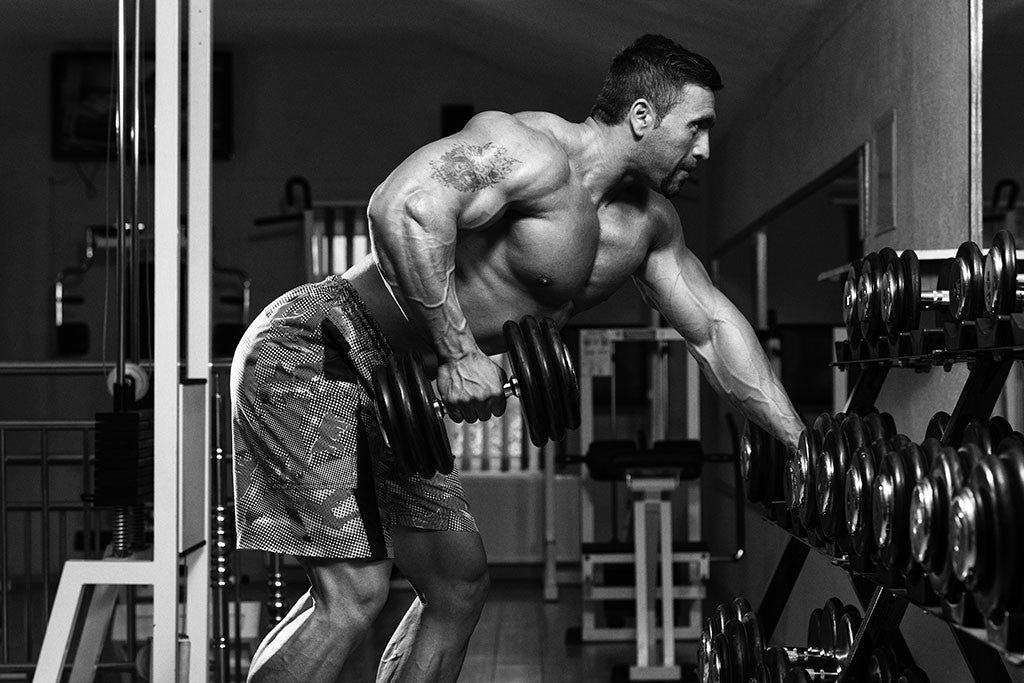
You love to pump iron - but you don't feel quite as healthy as you should. You get plenty of sleep, you take your supplements, and your diet is pristine. Still, you feel like something may be lacking. It may be an iron deficiency! Let's dig into some "Iron FAQ" for the athlete that loves to pump iron but wants to make sure he or she isn't iron deficient!
What is Iron, and why is it important?
Iron is a mineral that our bodies need for many crucial functions. It is a key part of hemoglobin, which is a protein useful in red blood cells for moving oxygen in your bloodstream. Additionally, iron is useful for development of the skeletal and muscular systems. Cell function, Immune system function, connective tissue, and hormone synthesis are all other areas where iron is a key component. Simply put, your body needs it!
What does an iron deficiency feel like?
If you're an otherwise healthy individual, but you feel continually fatigued, then you may be suffering from an iron deficiency. No matter how much weight you are lifting, you may still be deficient. Iron is a very important mineral, and a deficiency of it is the #1 most common mineral deficiency. Almost one-third of the world's population is iron-deficient. If you're feeling run down, perhaps like you have a cold that will never go away, then it may be an iron deficiency which is causing this fatigue.

How can I get my iron tested?
Check with your physician and ask for a gold-standard test which checks your serum ferratin. This will inform you of total iron storage levels in your body. From there, you'll be able to ascertain whether or not you are currently living in an iron-deficient state. A full thirty percent of the world - two billion people - are iron deficient. So there's a good chance you will fall into this category!
Who is at risk of an iron deficiency?
All people are at risk of being deficient in iron, but athletes (who demand more of their bodies) run a higher risk. Women run a higher risk than men. You can undergo body testing to see if you are deficient, or you can dive right in and try an iron supplement, to see if that makes the fatigue symptoms go away for you.
Can I treat my own iron deficiency?
This very common deficiency is very commonly fixed with regular supplementation! Your body needs 8mg per day if you are a man, and 18mg per day if you are a woman. Women have a higher need due to what is lost in the menstrual cycle.You can treat your own iron deficiency by choosing foods that are high in iron, as well as taking an iron supplement each day.
What foods are rich in iron?
Liver, shellfish, oysters, tofu, pumpkin seeds, and iron-enriched cereals are all excellent sources of dietary iron. Some good sources include beef, sardines, lamb, turkey, broccoli, beans, and potatoes. Average sources include pork, fish, chicken, nuts, dried fruit, rice and vegetables. Eating shellfish or red meat at least twice each week will enhance your body's ability to absorb iron from the diet. Consuming iron-rich foods with foods rich in vitamin C will help increase the absorption rate. Great sources of vitamin C for this purpose include limes, kiwi, strawberries and oranges. When in doubt, pound the spinach, and you'll know your body has received the iron it needs!
Are any athletes particularly susceptible to iron deficiency?
All athletes run a high risk of being iron deficient, but runners have a markedly higher rate of deficiency. This is due to a condition known as "footstrike hemolysis". This is caused by red blood cell breakdown which occurs as the feet hit the ground over and over during the course of running. If you use a lot of running in your cardiovascular training, then you are at a higher risk of being iron deficient.
Does iron really matter?
If you run low on iron for years at a time, you will suffer from some developmental issues. Chronic fatigue can leave you underperforming in the gym, the boardroom, and the bedroom, for years at a time. Your immune system will be compromised, leading to more bouts of cold and flu. Mood fluctuations are normal, as are loss of endurance, power, and willingness to train. And, your appetite suffers. These symptoms run counterproductive to everything an athlete needs for a great workout and proper recovery. Seeing as iron supplementation is such an easy fix, it only makes sense that the wise athlete would devote resources to making sure he or she isn't iron deficient.
The bottom line is that iron is a key component of many of the processes of the body that the athlete holds near and dear. If you are suffering from low iron, you can easily adjust your diet and supplementation to correct this deficiency, and start seeing greater gym and recovery results. It just makes sense, doesn't it?


